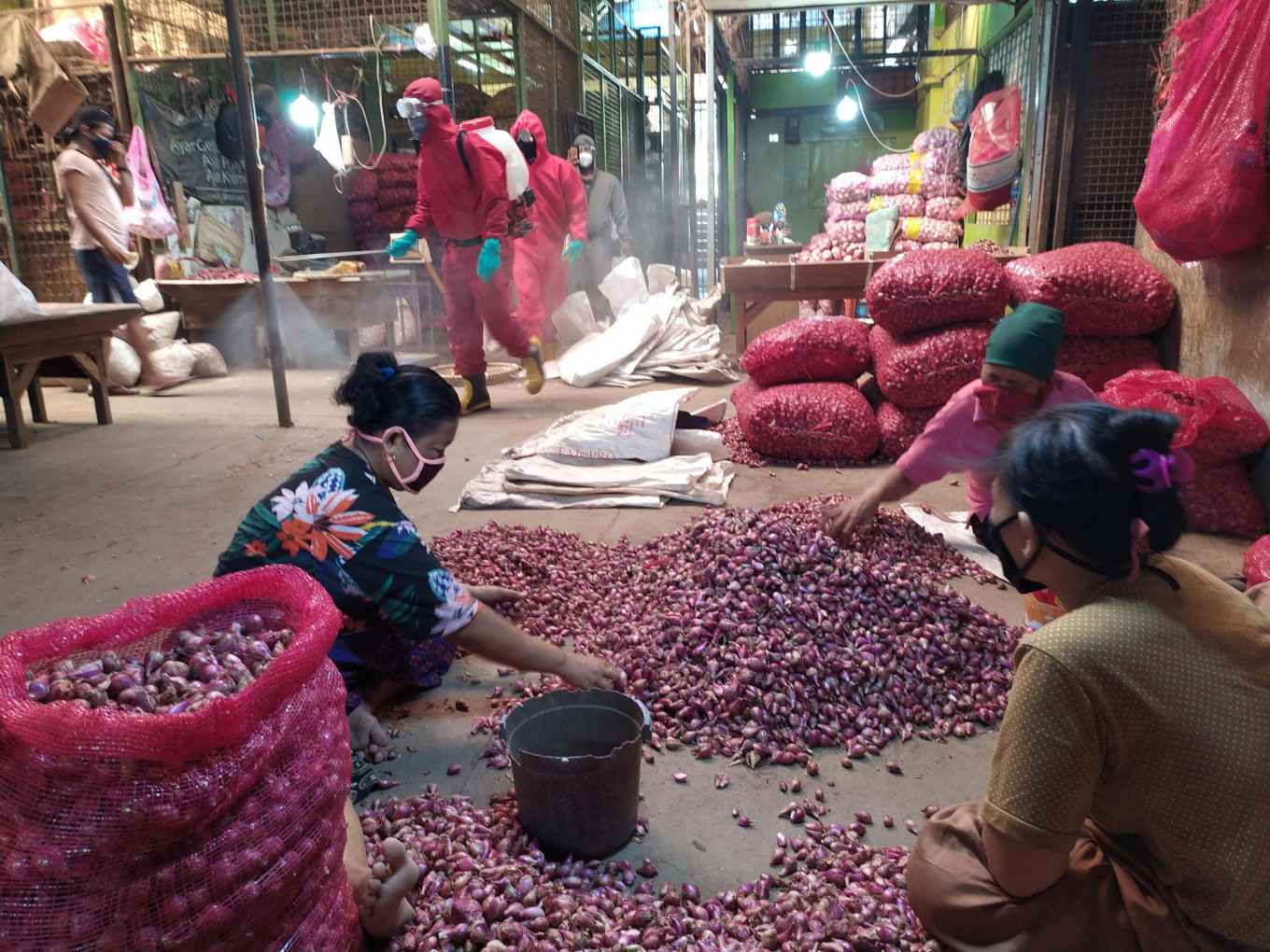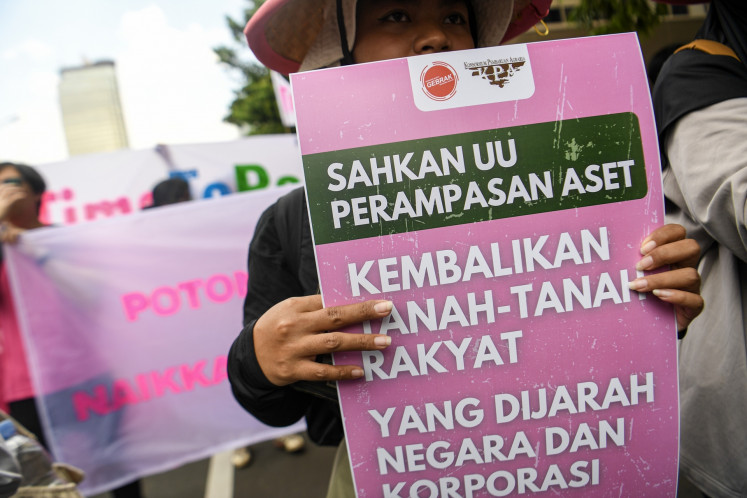Popular Reads
Top Results
Can't find what you're looking for?
View all search resultsPopular Reads
Top Results
Can't find what you're looking for?
View all search resultsStaple food prices drive inflation as Idul Fitri approaches
Consumer prices last month rose less than they usually do ahead of Idul Fitri, as mobility restrictions are keeping demand subdued.
Change text size
Gift Premium Articles
to Anyone
Indonesia’s inflation rate picked up in April amid growing demand for staple foods during Ramadan and nearing Idul Fitri, which is slated to start on May 13, although the increase remains muted compared to prepandemic levels due to the ongoing mobility restrictions.
Statistics Indonesia (BPS) reported Monday that the consumer price index rose 0.13 percent in the month of April and 1.42 percent on an annual basis, both of which were lower than the inflation rates seen in April last year, when mobility restrictions were much tighter.
The food, beverage and tobacco expenditure group contributed 0.05 percentage points to the monthly rise in consumer prices, driven by chicken meat, cooking oil, oranges, grapes, papaya, filtered clove cigarettes, fresh fish and apples.
“The chicken meat price rose due to the price increase in feed, namely corn,” Setianto, the deputy of services and distribution statistics at BPS, said in a virtual press conference on Monday. “Demand during Ramadan and leading up to Idul Fitri also contributed to the price increase in chicken meat.”
Consumer prices usually pick up strongly during Ramadan and Idul Fitri, but ongoing micro-scale public activity restrictions (PPKM Mikro) and a mudik (exodus) travel ban have muted the seasonal surge in demand for key commodities.
Read also: ‘Mudik’ banned – again
Last month, in the food, beverage and tobacco expenditure group, the highest monthly increase was recorded at 0.40 percent in the price of cigarettes and tobacco, and the lowest at 0.15 percent for alcoholic beverages.
BPS reported that some food commodities showed no price increases in April, such as cayenne pepper, red chili pepper, shallot, rice, spinach and kale.
Core inflation was 0.37 percent on a monthly basis and 1.18 percent on an annual basis. For the government-administered prices, monthly inflation was 0.14 percent and annual inflation at 1.12 percent. Inflation for commodities with volatile prices was 1.86 percent on a monthly basis and 2.73 percent on a yearly basis.
Last month’s inflation was lower than estimates from state-owned Bank Mandiri, which had forecast monthly inflation of 0.16 percent and annual inflation of 1.45 percent, according to its preview note published on Monday.
“General demand remains weaker than pre-COVID-19 pandemic levels amid the extension of enforcement of PPKM and the prohibition on annual mudik to avoid a spike in the COVID-19 daily cases,” Bank Mandiri chief economist Andry Asmoro wrote in the note.
“The upside risk may come from a higher gold price due to increased uncertainty in the financial market.”
The global financial market has turned volatile after the benchmark United States Treasury (UST) yields rallied in March, spurred by the US’s roll-out of its US$1.9 trillion recovery stimulus, then dropped to a five-week low on April 15.
Read also: BI keeps benchmark rate at 3.5%, lowers GDP growth projection










